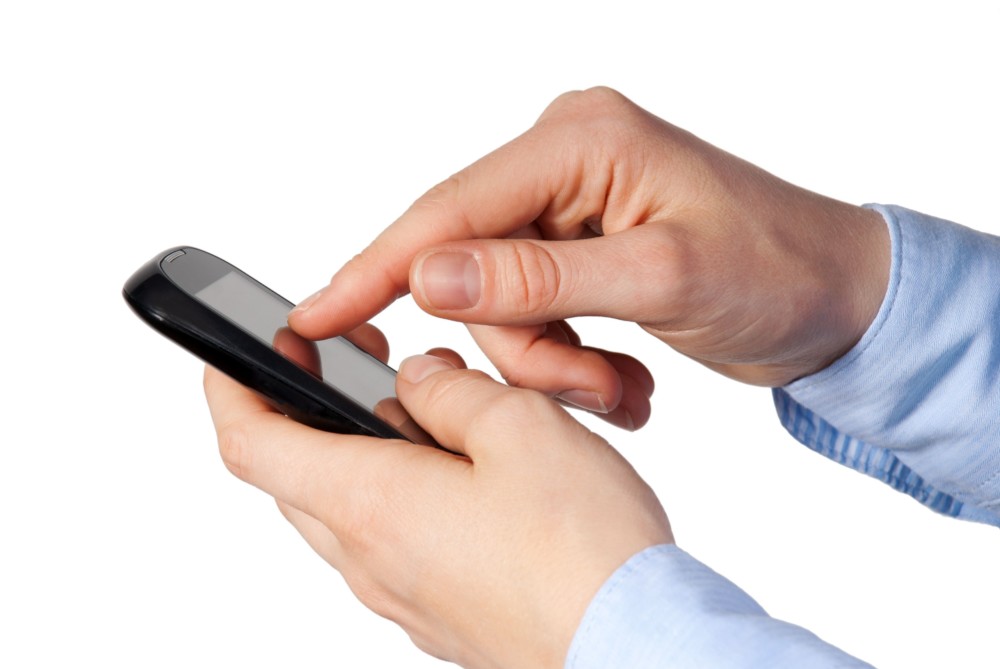By Sammy Caiola
The Sacramento Bee
WWR Article Summary (tl;dr) One way to alleviate the stress of never-ending phone calls is to prioritize alerts into categories. Your coworkers, for example, could have a different ringtone than your friends. Phones also have options to silence certain contacts or to mute chat conversations temporarily.
The Sacramento Bee
Doug Ross, 31, wakes every morning to a screen full of notifications.
He receives updates from news apps, chats from coworkers and emails from East Coast clients, all beckoning to be answered before the workday even starts. Working during the day as a consultant for the software company Adobe, the alerts pour in on a near-constant basis. He usually answers within seconds.
“I never have it away from my person,” said Ross, a Sacramento, Calif., resident, about his phone. “That gives me anxiety. It bothers me, because I know what is going to be on the phone when I get back to it, or what I’m going to miss.”
Many people find the constant dings, rings, buzzes and beeps that come from their computers and cell phones impossible to ignore. Experts say it’s a sign of our dependency on technology, which validates and entertains us while also cutting into our productivity and altering our attention span for the worse.
When a cellphone, laptop computer or smartwatch makes a noise, it produces mental and physical reactions in people, said Larry Rosen, a psychology professor emeritus at California State University, Dominguez Hills, and author of “The Distracted Mind: Ancient Brains in a High-Tech World.” Their heart rates increase. Their skin tingles. They grow increasingly antsy with every minute they don’t look at the screen.
“We’ve trained ourselves, almost like Pavlov’s dogs, to figuratively salivate over what that vibration might mean,” Rosen said. “If you don’t address the vibrating phone or the beeping text, the signals in your brain that cause anxiety are going to continue to dominate, and you’re going to continue feeling uncomfortable until you take care of them.”
The reaction is so ingrained that it kicks in even without a prompt, Rosen said. The average person checks their cell phone about 60 times per day, or nearly four times each waking hour, whether they hear a sound or not, according to one of his recent studies. That adds up to a total of 220 minutes per day.
“Almost exactly half of the check-ins have no alerts or notifications,” he said. “It’s your brain telling you to check in. It’s your brain telling you ‘I don’t know if anyone new is following me.’ ”
Sometimes, people even hear “phantom rings,” where they think their phone is going off but it isn’t, said David Laramie, a Beverly Hills psychologist who coined the term “ringxiety.”
Laramie said the mind is always anticipating alerts and people often imagine them to fill a void.
Ross said he sometimes feels a buzzing in his right pocket when he knows his phone is in his left.
“It’s definitely a real thing,” he said of the phantom rings.
The reasons for the obsession are manifold, experts said. When people could only communicate by land line, messages appeared on answering machines, with no expectation for a prompt response. Now, a cell phone is a constant companion that takes in thousands of emails as well as updates from social media networks including Facebook, Twitter and Snapchat.
“It’s wonderful, powerful technology, but it’s really seductive, and you need to be deliberate about how you use it,” Laramie said.
Many people can’t escape their technology because they rely on it for work, said Whitson Gordon, editor in chief of tech website “How to Geek.” Gordon works remotely from his Los Angeles-area home, and said he used to panic over every sound his devices made, fearing it was an urgent question from a coworker when it was really just a mundane notification from an app.
One way to alleviate that stress, Gordon said, is to prioritize alerts into categories. Your coworkers, for example, could have a different ringtone than your friends. Phones also have options to silence certain contacts or to mute chat conversations temporarily.
When it comes to applications, most ask the user directly after download whether they’d like to receive notifications or not. Saying “no” can help, though many apps are constantly adding new features that result in a flood of notifications anyway, he said.
“In order to keep you on for as long as possible, they send you a notification to have you use it when you might not otherwise,” he said. “If you’re pruning those notifications properly and your phone’s not buzzing every five seconds, it’s about just filtering the stuff that’s actually important.”
Laramie said he works with many of his patients on how to decrease their screen time, whether it means putting the phone in another room or even just in another pocket.
“It becomes draining to always be on call, to always be concerned with the phone,” he said. “It’s just perpetual awareness.”
Another solution, Rosen said, is to put yourself on a schedule, such as allowing yourself to check your phone for a few minutes every hour on the hour.
He also suggests an attention span test. Set a phone alarm for 15 minutes. Put your phone face down, somewhere near you. Get engaged in another task and keep doing it until the alarm goes off. Check your phone. Start over.
“Keep doing that until you get to a point where your alarm goes off and you say, ‘Wait, I want to finish what I’m doing,’ ” he said. “Then you know you can focus for 15 minutes. The more invested you are in these apps, the more you’ll struggle. It may be that the best you can get is 15 minutes of attention, and that’s a sad thing to say about our attention spans.”














































































































































































































































































































































































